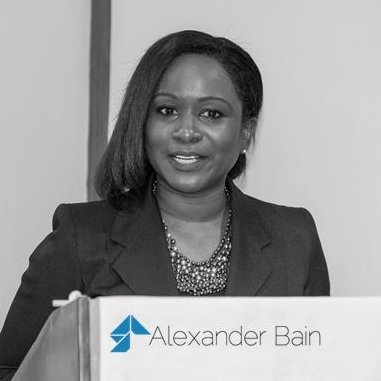The apprenticeship prologues....
Technology facilitated the whole do-it-yourself trend and the desire for personalised services. Could these and other factors change what the management consulting / accounting professions will eventually become...?
Meeting with First Warden , David Johnson, this month we discussed how members could get involved in shaping our profession. It’s livery tradition to secure its integrity and regulate competence; to train the next generation and set industry standards; lead the way.
For me, a relative youngster with ties to both Accounting and Management Consulting, the prevalence of technological change makes me curious, because the process is unfolding at an unprecedented speed. For instance, the HMRC’s digital reporting systems have altered how Small and Medium-sized Practices (SMPs) will operate now and in the future. Technology also facilitated the whole do-it-yourself trend and the desire for personalised services. Could these and other factors change what the accounting profession will eventually become?
To get a sense of where the profession’s heading I feel inclined to examine the past. It’s believed that taking account for commodities originated over 20,000 years ago. According to a recent Tim Harford article (the Financial Times's Undercover Economist), cuneiform was the earliest system of correspondence counting or double entry. He said of the early accounting vocation : “Correspondence counting is easy: you don't need to know how to count, you just need to look at two quantities and verify that they are the same.” Could this be the re-emerging model of our future? Or is that future already here? Has that shift towards clients embracing technology to meet compliance been pushing accounting firms into the management consulting space for a while now? What do you think? Is management consulting a subset of accounting or is it the other way ‘round? The two professions are very much intertwined. In fact, many of our members also have ties to accounting bodies.
I try to imagine what it might have been like for the Scriveners; when they too were evolving into something new. Had it been slow or immediate? Their website recalls: “As London's trade and commerce grew in value and volume in the 18th century, so did the demand for legal services, giving increased opportunities for attorneys and solicitors to break in upon the Scriveners' traditional responsibilities.” Is a similar break-in happening today with accountants and management consultants? I look forward to discovering this as I begin my livery journey.
The Employers' Committee established the government standard for Junior Management Consultants. The project will soon begin its second phase - i.e. defining what skills and experience are specific to a Senior Management Consultant
That meeting with David Johnson highlighted that the foundation had already been laid. The employers’ committee was instrumental in establishing government standard for Junior Management Consultants. Working with a cross-sector team of over 40 employers, the committee - comprising a range of management consulting representatives - developed the Professional Services Higher Apprenticeship programme. One can argue that traditionally management consultants weren’t young. Expertise takes time to mature, doesn’t it? What does that make of the apprenticeship route then? Is it a viable option? What of the long-term impact of apprenticeship on the profession? Especially as the project will soon begin its second phase, defining what skills and experience are specific to a Senior Management Consultant.
I think it was Eldridge Cleaver who once said “There is no more neutrality in the world. You either have to be part of the solution, or you're going to be part of the problem”. What do you think? Shouldn’t there be more of us involved in reshaping what our profession becomes to meet the demands of tomorrow?
Join us.
Register your interest to participate in the forthcoming roundtable discussion: :Contact: David Glassman: david@glassman.com David Johnson : davidjohnson.wcomc@yahoo.co.uk or Rhonda Best: rhonda.best@alexanderbain.co.uk

Rhonda Best, Freeman
Admitted as a Freeman in January 2017, Rhonda is also a Council Member for the Association of Chartered Certified Accountants (ACCA). Recently appointed to represent WCoMC at the Liveries Skills Council, for the past 20+ years she has worked with small and mid-market enterprises across Europe, the Caribbean and South America. She now specialises in growth strategies for that sector.
Sources
How the world’s first accountants counted on cuneiform: www.bbc.co.uk/news/business-39870485
The Scriveners Company : www.scriveners.org.uk/history
